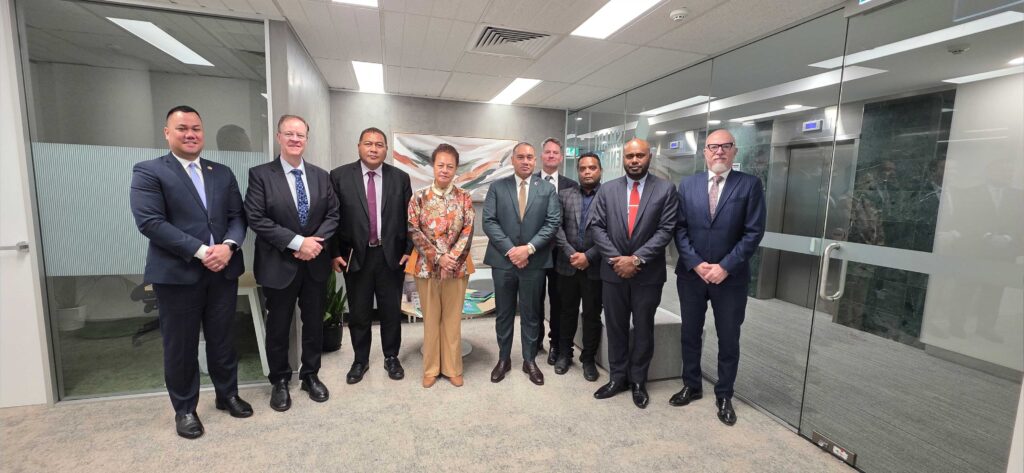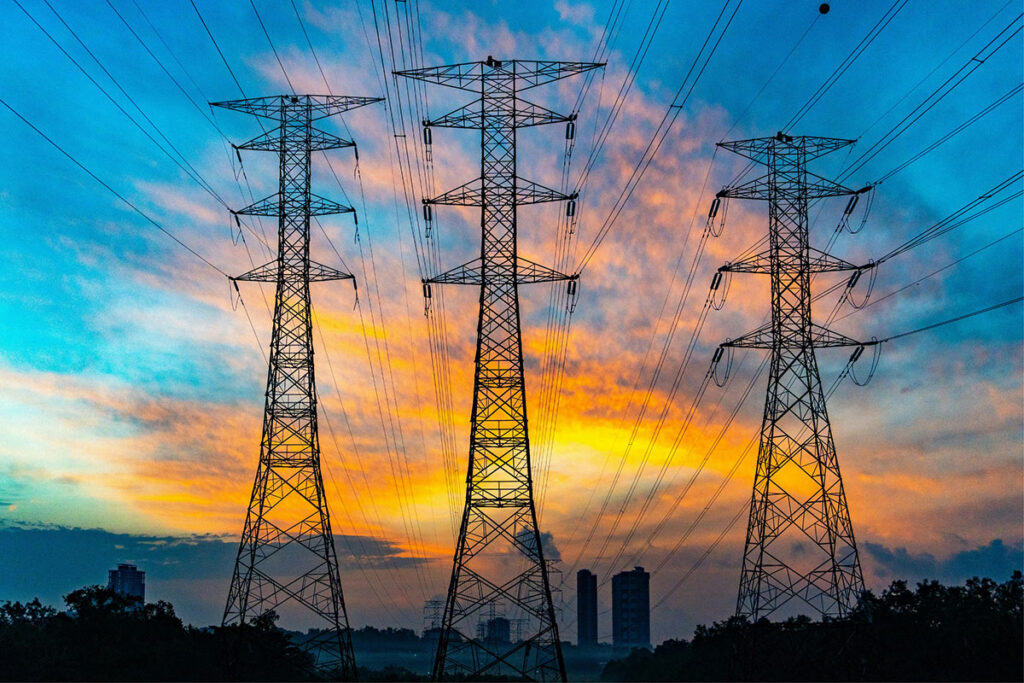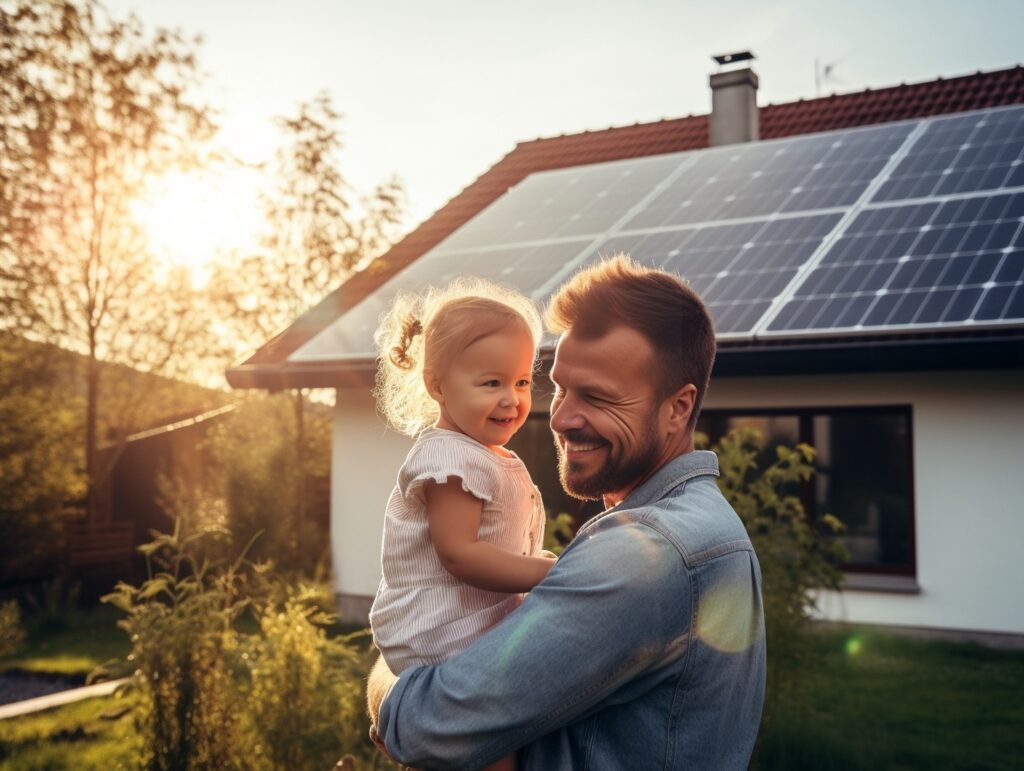8 October, 2025 I Canberra
On 8 October, Pacific diplomats came together in Canberra for a high-level Roundtable hosted by Smart Energy Council CEO John Grimes to discuss the 100% Renewable Energy Blue Pacific discussion paper. The High Commissioners from the Federated States of Micronesia, Tuvalu, Tonga, Samoa, Solomon Islands, Vanuatu and the Honorary Consul of Palau joined the discussion, alongside Smart Energy Council leaders Scott Hamilton, Richard Neumann and William Carr.
The group explored a bold but achievable idea: a Pacific region powered entirely by renewable energy, with COP31 providing the platform to drive global attention and donor backing for this world-leading effort.
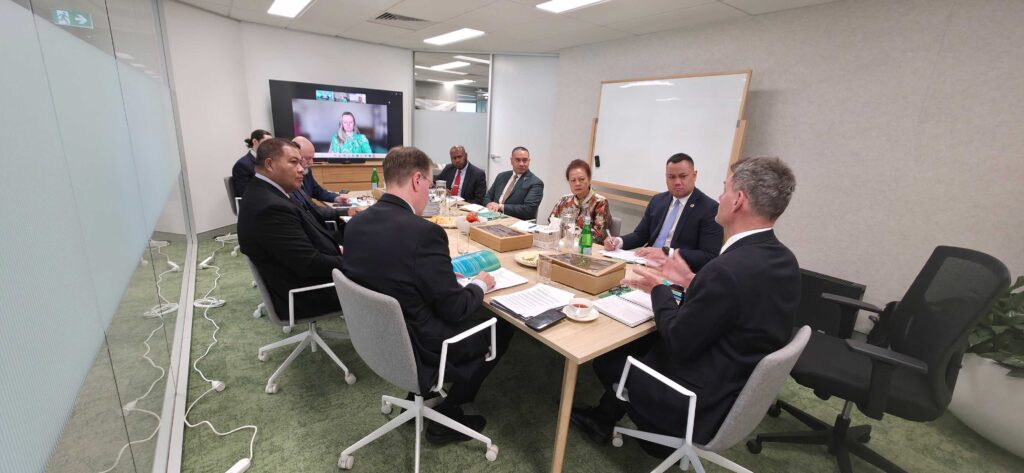
A Pacific-Led Legacy for COP31
Participants agreed that a unified goal of a 100% renewable energy Blue Pacific could become a defining legacy for COP31 – delivering long-lasting benefits for island nations and showcasing Pacific leadership on climate action. They emphasised that the transition must be tailored to each nation’s unique conditions. A one-size-fits-all model will not work across such diverse geographies and energy systems. Success would require coordination across regional, national and, where relevant, sub-national levels, which could help address shared challenges across the region.
The Economic Case: Solar and Batteries Now Outcompete Diesel
Leaders highlighted the crippling financial burden of fossil fuels.
For example:
- Tuvalu spends around 50% of its annual government budget on fuel, and
- In the Solomon Islands, fuel costs can consume a quarter of a civil servant’s income.
With solar and battery prices dropping rapidly, participants noted that renewables can now deliver reliable electricity at far lower cost, accelerating electrification and reducing vulnerability to volatile diesel prices. While there is still a small price gap for batteries, that gap is shrinking quickly.
Mobility, Skills and Quality: Key Areas for Progress
Electrification is already gathering momentum across the region:
- China leads global EV production,
- India is rapidly electrifying two-and three-wheelers, and
- Japan has donated EVs to Samoa, now used by ministers after CHOGM.
But participants also highlighted key challenges:
- ensuring high product quality and good system design,
- building local skills and training pathways,
- improving community awareness, and
- securing finance to help cover upfront capital costs.
They agreed that all new renewable systems must incorporate maintenance plans and end-of-life stewardship, ensuring long-term sustainability and resilience.
How the Smart Energy Council Can Help
Participants recognised the Smart Energy Council’s ability to provide:
- advice on product standards and system design,
- support for regulatory frameworks, and
- training programs, especially for women, who often remain in-country and provide long-term capacity.
The International Solar Alliance’s consumer awareness programs were also highlighted as adaptable for Pacific communities, potentially delivered through church networks.
They also appreciated the flexibility of modern solar solutions, including floating solar, agrivoltaics and solar carports – technologies well-suited to island environments.
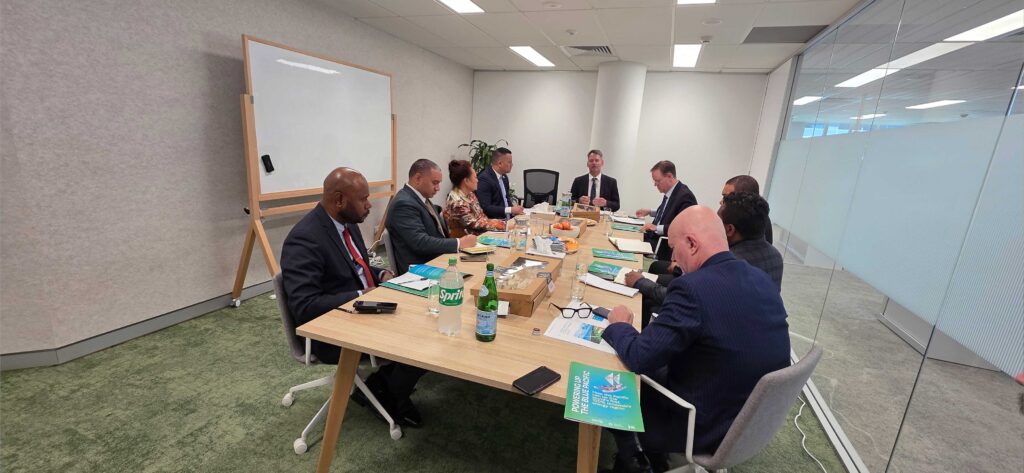
Looking Ahead: Showcasing Innovation and Building Partnerships
There was strong interest in sending a delegation of Pacific utility leaders to the Smart Energy Conference & Exhibition on 5–6 May 2026. This would provide hands-on exposure to the latest decarbonisation technologies and an opportunity to work with SA Power Networks, who manage a grid capable of running entirely on rooftop solar at times.
Participants also looked forward to the publication of the final 100% Renewable Energy Blue Pacific report at COP30 in Belém, and to building momentum throughout 2026, including at the Pacific Islands Forum in Palau in August.
A Proposed ‘Adelaide Fund’ to Drive Practical Action
A new idea resonated strongly: establishing an “Adelaide Fund” to enable governments, philanthropists, businesses, NGOs and community groups to co-invest in Pacific decarbonisation. The fund could bankroll solar, battery and EV charging projects, with repayments made through fuel savings – helping overcome the upfront cost barrier.
A rapidly decarbonising Pacific would become a global beacon, with lessons shared across regional organisations such as the African Union, ASEAN, Caricom, the Indian Ocean Rim Association, Mercosur, the Organisation of Islamic Cooperation and the Pacific Alliance.
What They Said
John Grimes, CEO, Smart Energy Council
“The Pacific can become the world’s first 100 percent renewable energy region with practical, affordable solutions. In many islands, solar and batteries now deliver reliable power at a fraction of diesel, and every dollar shifted from fuel bills to local skills and maintenance is money that stays in the community.”
Richard Neumann, Senior Adviser, Smart Energy Council
“This is a Pacific-led effort built on consultation. Our aim is to align governments, utilities and finance so projects move from concept to delivery, using this report as a practical tool to build resilient systems, create jobs and attract investment on the road to COP31.”

